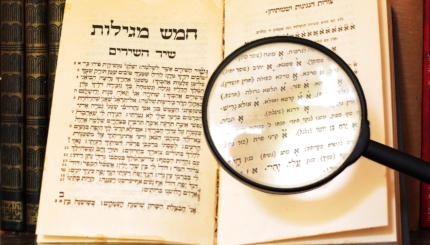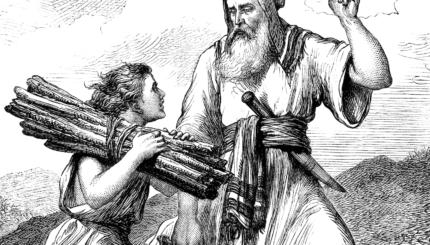mf_new
El Maleh Rachamim: Recasting the Language of Loss
This haunting memorial prayer employs subtle nuances of language to gently invert the vocabulary of grief.
Shir Hashirim: Joining Human and Divine Love
Song of Songs is unique among biblical texts for its pure expression of love.
Re’eh: Seeking Divine Compassion in Times of Suffering
The seventh blessing of the Amidah asks God to see our suffering and redeem us from it.
Modim: A Prayer for Acceptance
This section of the Amidah is understood as one of thanks, but that's not the only way to read it.
V’ayrasteech Lee: Binding Ourselves to God
These verses from Hosea describe the bond between God and the Jewish people as akin to the one between husband and wife.
Why We Start the Amidah By Blessing the Patriarchs
Opening this primary prayer by invoking our ancestors emphasizes that our relationships with our parents is a model for our relationship with God.
Beginning the Amidah by Connecting to Our Ancestors
The opening to the Amidah prayer shifts the perspective from personal needs to the long arc of Jewish history.
Will the Real Esther Please Stand Up?
The heroine of the Purim story is portrayed in contradictory ways in the biblical book that bears her name.
Ein Kamocha: How to Hear Torah in the Modern Age
The prayer we recite when removing the Torah from the ark carries an important lesson about how to understand its ancient words across the expanse of time.
How Blessing Children on Shabbat Models Unconditional Love
Like the paradigmatic blessing for rain, the Shabbat practice of blessing children offers the gift of love in exchange for nothing.









